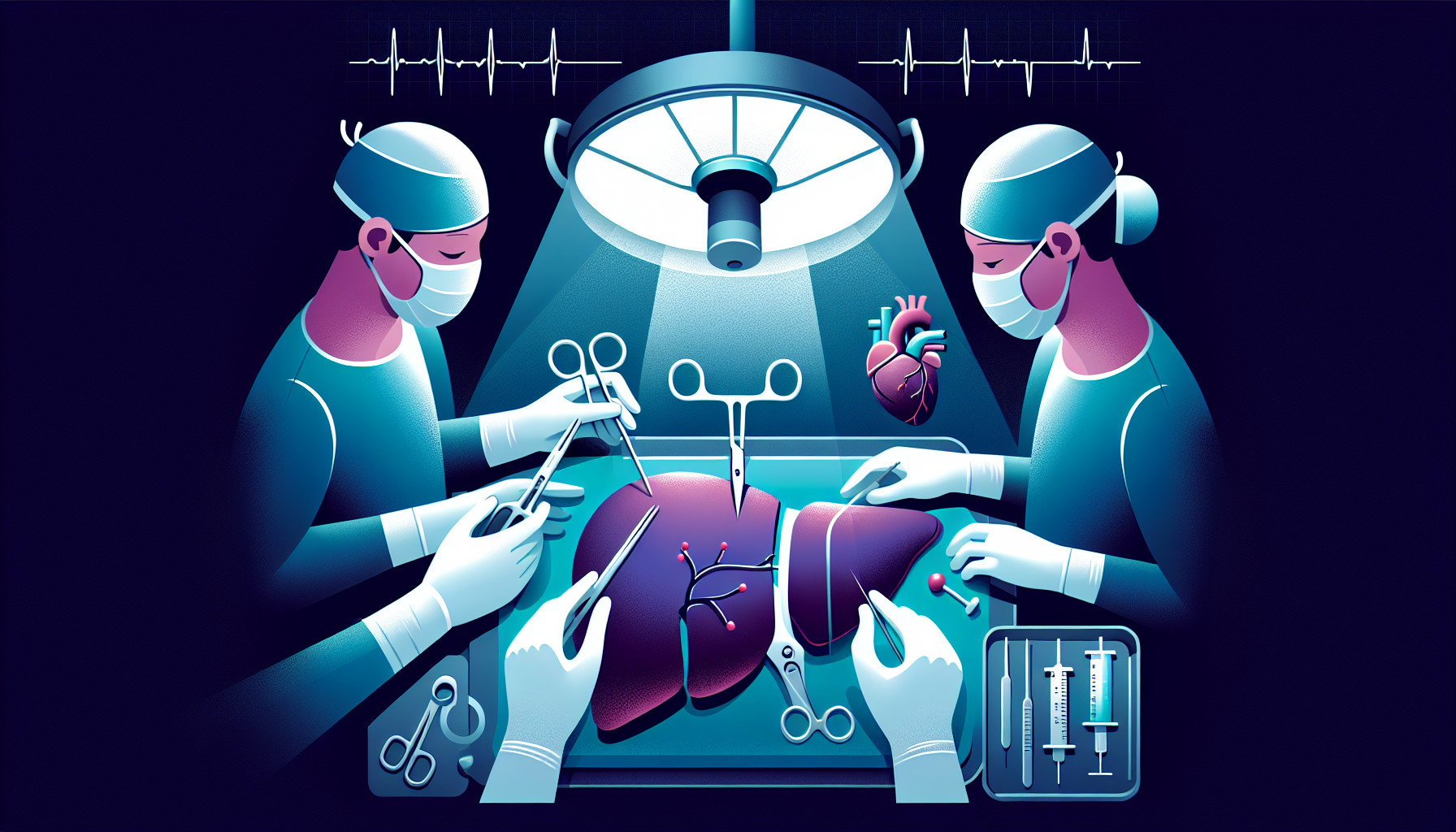Our Summary
Liver transplantation is an expensive and risky operation. With a shortage of organ donors and uncertainty about patient survival, it is crucial to identify risk factors that can predict patient survival post-transplant. This study aimed to identify these factors and see how they fit into a holistic model of patient wellbeing.
The researchers looked at large-scale studies from the 1980s to 2014, involving 500 or more subjects, which focused on patient survival after a liver transplant from a deceased donor. They found 26 studies that met their criteria and analyzed the data from these studies.
The factors that predicted patient survival were then categorized into six dimensions of wellbeing - health, community, environment, relationships, purpose, and security. The majority of the predictors (69.7%) fell into the health dimension. There were no predictors found in the relationship and purpose dimensions nor in emotional, mental, and spiritual health.
In conclusion, the research showed that while there are a number of predictors of liver transplant survival, the results across different studies were inconsistent. This suggests that more research is needed to take into account a broader view of the patient, including emotional, mental, and spiritual health.
FAQs
- What was the primary aim of this study about liver transplantation?
- What were the six dimensions of wellbeing the study categorized the predictors of patient survival into?
- What did the research conclude about the predictors of liver transplant survival?
Doctor’s Tip
Therefore, it is important for patients undergoing a liver transplant to focus on maintaining a healthy lifestyle, following their doctor’s recommendations, and seeking support from loved ones and mental health professionals to improve their overall wellbeing and increase their chances of a successful outcome. It is also crucial for patients to stay informed about the risks and benefits of the procedure and to work closely with their healthcare team to make informed decisions about their care.
Suitable For
Overall, patients who are typically recommended for a liver transplant are those with end-stage liver disease, such as cirrhosis, hepatocellular carcinoma, acute liver failure, or certain genetic disorders that affect the liver. Patients who have failed other treatments for their liver condition and have a decreased quality of life due to their liver disease may also be recommended for a liver transplant. Additionally, patients who have a good chance of surviving the transplant surgery and have a good support system in place for after the surgery are more likely to be recommended for a liver transplant.
Timeline
Before liver transplant:
- Patient is diagnosed with end-stage liver disease and is placed on the transplant waiting list.
- Patient undergoes extensive medical evaluations and testing to determine eligibility for transplant.
- Patient waits for a suitable donor liver to become available.
- Once a donor liver is found, patient undergoes the transplant surgery.
After liver transplant:
- Patient is closely monitored in the intensive care unit immediately following the surgery.
- Patient stays in the hospital for a period of time for recovery and to monitor for any complications.
- Patient is discharged from the hospital and continues to be monitored by healthcare providers on an outpatient basis.
- Patient must take immunosuppressant medications for the rest of their life to prevent rejection of the transplanted liver.
- Patient undergoes regular follow-up appointments and testing to monitor the health of the transplanted liver and overall wellbeing.
What to Ask Your Doctor
Some questions a patient should ask their doctor about liver transplant include:
- What are the potential risks and complications associated with liver transplant surgery?
- What is the success rate of liver transplant surgeries at this facility?
- How long is the recovery process expected to be, and what is the typical timeline for returning to normal activities?
- What is the availability of organ donors for liver transplants, and what is the average wait time for a suitable donor?
- What are the long-term implications and potential side effects of taking immunosuppressant medications post-transplant?
- How often will I need to follow up with medical appointments and tests after the transplant surgery?
- What lifestyle changes, such as diet and exercise, will I need to make post-transplant to ensure optimal health and wellbeing?
- Are there any support groups or resources available for liver transplant patients at this facility?
- How will my mental and emotional health be supported throughout the transplant process and recovery?
- What factors should I consider when making decisions about pursuing a liver transplant, and what are the potential outcomes for my specific situation?
Reference
Authors: Pruinelli L, Monsen KA, Gross CR, Radosevich DM, Simon GJ, Westra BL. Journal: Prog Transplant. 2017 Mar;27(1):98-106. doi: 10.1177/1526924816680099. Epub 2016 Nov 25. PMID: 27888279
